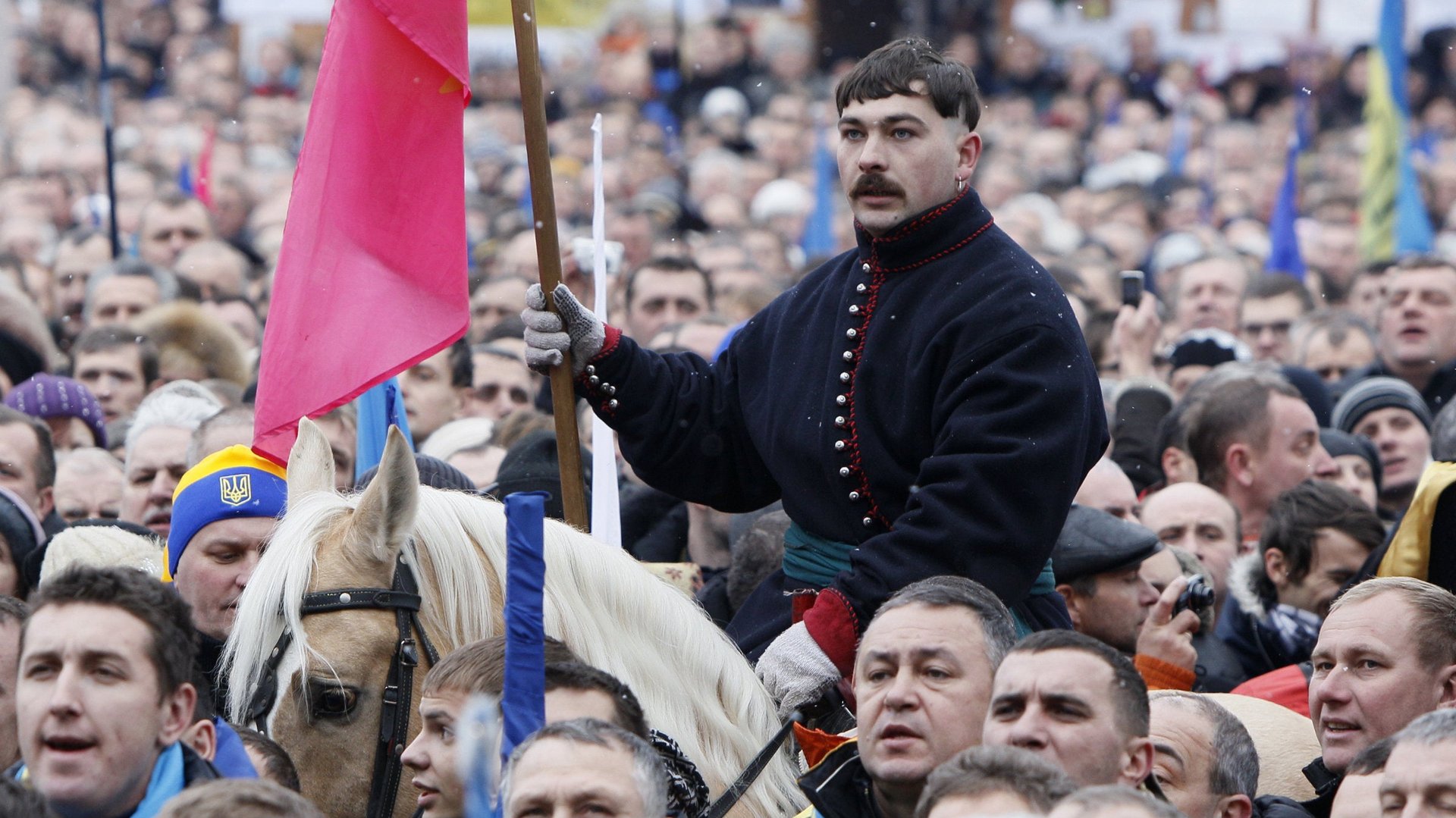Why Ukraine’s protesters aren’t going to get their way
Over the course of the day Monday, riot police cleared protesters from a number of Ukrainian government buildings including those housing the presidency, cabinet offices and parliament. The lack of violence now, compared to the brutal attacks two weeks ago, should not overshadow the fact that Ukraine remains firmly locked in a worsening political-economic crisis from which an exit is increasingly unlikely. To simplify things a bit: All of the politically realistic plans won’t do anything to solve the crisis and all of the plans that would solve the crisis are politically unrealistic.


Over the course of the day Monday, riot police cleared protesters from a number of Ukrainian government buildings including those housing the presidency, cabinet offices and parliament. The lack of violence now, compared to the brutal attacks two weeks ago, should not overshadow the fact that Ukraine remains firmly locked in a worsening political-economic crisis from which an exit is increasingly unlikely. To simplify things a bit: All of the politically realistic plans won’t do anything to solve the crisis and all of the plans that would solve the crisis are politically unrealistic.
You can see this very clearly in the most recent deal cut by Yanukovych. On his way back from China, the Ukrainian President met with Vladimir Putin in Sochi and came to some sort of economic and trade agreement. Precise details have not yet been released, but it’s expected that the deal involves short-term financial support in exchange for Ukrainian promises to more closely integrate with the Russian-led customs union. This does precisely nothing to address the protesters’ concerns about economic, and eventually, political integration with the European Union while simultaneously distancing itself from Moscow. If anything, this actually seemed to galvanize the crowds in the streets.
The only course of action that would meet the opposition’s demands, a signing of the association agreement with the European Union, is politically impossible. It would cause too much short-term harm to the Ukrainian economy by inflating an already huge current account deficit and would likely spark retaliatory Russian trade sanctions. It’s also worth considering that, at this point, signing the association agreement would be an unmitigated display of weakness, and that someone in Yanukovych’s position can ill afford that type of display.
Yanukovych’s only real goal throughout the entire drama has been to stay in power and to set himself up for re-election in 2015. In order to have any chance of victory, he needs to postpone desperately needed economic reforms (and the pain they will inevitably cause) for as long as possible. Postponing change, particularly the maintenance of the increasingly indefensible dollar-hryvnia peg, costs money, and this is why Yanukovych has been so desperate to secure short-term financing from the Chinese, the Russians, and the Europeans. Ukraine is basically bankrupt and its finances are so parlous that it can’t afford to borrow on international markets. In order to plug all of the holes in the ship, Yanukovych needs cash, and he’ll make a deal with anyone who promises to deliver it.
Yanukovych’s pressing desire for a short-term injection of cash combined with the European Union’s policy of not engaging in a “bidding war,” suggests that Ukraine will temporarily be drawn closer to Russia. However, while a deal with the Russians might temporarily boost Yanukovych’s fortunes, it will only increase the opposition’s demands for integration with Europe.